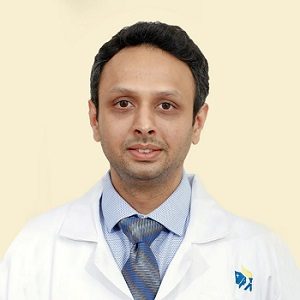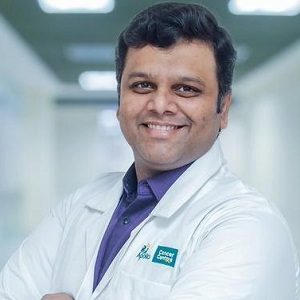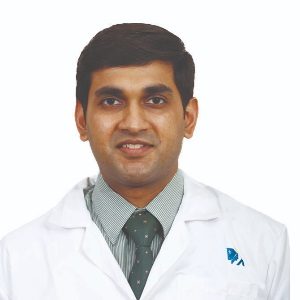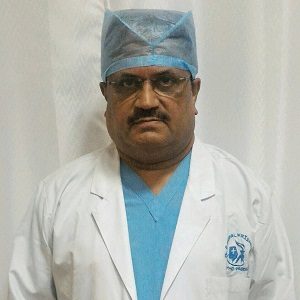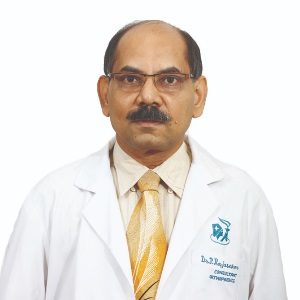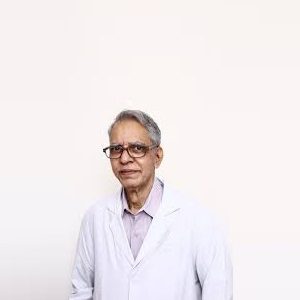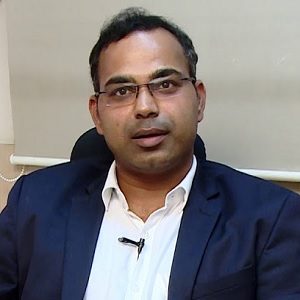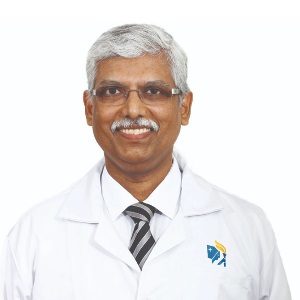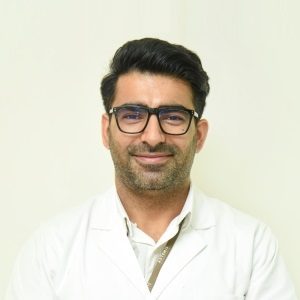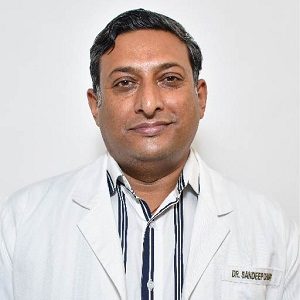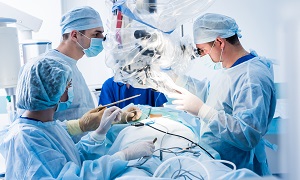Best Doctors in India for Rheumatoid Arthritis treatment
- Orthopedic Surgeon, Chennai, India
- Over 12 years’ experience
Profile Highlights:
- Dr. Kunal Patel consults on Orthopedics related problems at the Apollo hospitals of Chennai.
- He was part of the team which set Limca’s World record of Highest Joint Replacement Surgeries in March 2015.
- Dr. Kunal Patel is well-trained in Asia’s first and only Brainlab Arthroplasty Computer Navigation Orthopedic suite and has completed several fellowships related to his field.
- Orthopedic Surgeon and Spine Surgeon, Chennai, India
- Over 12 years’ experience
Profile Highlights:
- Dr. Madhu Kiran Yarlagadda is an orthopedics – consultant specializing in Joint and spine surgery and works at the Apollo hospitals of Chennai.
- Dr. Madhu Kiran Yarlagadda’s team carried out Robotic Spine Surgery for the first time in South-East Asia and performed Endoscopic Transforaminal Spine Surgery in Chennai.
- He treats spine diseases and has the facilities and expertise to perform robotic spine surgery. Along with that, he treats patients with joint and other orthopedic issues.
- Orthopedic Surgeon, Chennai, India
- Over 16 years’ experience
Profile Highlights:
- Dr. Arun Kannan is a well-known joint replacement surgeon at the Apollo Hospitals, Chennai.
- In his 16 years of experience doing joint surgeries and treating orthopedic issues, Dr. Arun Kannan has worked in the US as well as India and has gained enough trust and recognition from his patients.
- He has been excellent in his academics as well as practice because of which he received prizes and appreciation in both.
- Orthopedic Surgeon, Chennai, India
- Over 40 years’ experience
Profile Highlights:
- An Orthopedic doctor by profile, Dr. Gopala Krishnan has around 40 years of experience in his field.
- After his initial studies in medicine in Chennai, Dr. Gopala Krishnan moved to the US to pursue M.Ch in Orthopedics in 1984.
- His experience and dedication have helped him gain recognition in the field and build trust among patients.
- Orthopedic Surgeon, Chennai, India
- Over 24 years’ experience
Profile Highlights:
- Dr. Rajasekar P is an experienced orthopedist with 24+ years of experience.
- He treats and consults patients with problems with Joints, fractures, osteoporosis, Spine injuries, etc.
- He is an MBBS and DNB qualified doctor and practices at Apollo hospitals of Chennai.
- Orthopedic Surgeon, Chennai, India
- Over 50 years’ experience
Profile Highlights:
- Dr. Uma Chandran S specializes in orthopedics and is a veteran surgeon at Apollo Hospitals of Chennai.
- He has spent more than 50 years in the field of orthopedics and is believed to be one of the best orthopedists in Chennai.
- He is also known for his expertise in bone replacement surgery, spine movement, fracture treatment, etc.
- Spine Surgeon and Orthopaedic Surgeon, Chennai, India
- Over 18 years’ experience
Profile Highlights:
- Dr. Muralidharan Venkatesan is a consultant in spine surgery from Chennai.
- He provides comprehensive cervical (neck), thoracic (upper back), and lumbosacral (lower back) conditions treatment.
- Dr. Venkatesan pursued MBBS, MRCS, and a fellowship FRCS and shifted his specialization to spinal surgery.
- Dr. Venkatesan has his papers published in several journals.
- Orthopedic Surgeon and Spine Surgeon, Chennai, India
- Over 23 years’ experience
Profile Highlights:
- Dr. Ravi Venkatesan is a spine surgery specialist from Chennai, Tamil Nadu.
- His experience in spine surgery, orthopedics, and spine deformity surgery date back nearly 23 years.
- Dr. Venkatesan has performed several surgeries and has been an active member of various orthopedics groups.
- Many organizations have recognized his service and have awarded him for his dedication.
- Orthopedic Surgeon, Gurugram, India
- Over 10 years’ experience
Profile Highlights:
- Irfan Banday is a brilliant young orthopedic surgeon with over 10 years of experience handling trauma surgeries and ortho problems.
- Irfan received Fellowship in Knee Arthroscopy and Arthroplasty and Shoulder and Upper Limb Arthroscopy, Arthroplasty & Reconstructive Surgery.
- He manages simple & complex fractures, Reconstructive Surgeries of the Knee, Shoulder, Upper limb, and complex tendon transfers.
- Orthopedic Surgeon, Gurugram, India
- Over 18 years’ experience
Profile Highlights:
- Sandeep Chauhan is one of the best orthopedic surgeons and an expert in managing complex fractures, even in children, soft tissue injuries, septic arthritis, and osteomyelitis.
- He performs fracture reconstructions; and arthroplasty procedures like surface replacements, cemented and un-cemented THR, Total Knee Replacement, musculoskeletal infections, UKA knee, hip, shoulder, & elbow replacements.
Best Hospitals in India for Rheumatoid Arthritis treatment
Rheumatoid Arthritis
A chronic, inflammatory disorder affecting more than just joints is called rheumatoid arthritis. It can damage a wide variety of body systems in some people, like lungs, skin, heart, eyes and blood vessels. It is an autoimmune disorder that takes place when the immune system attacks its own body tissues mistakenly. The condition affects the lining of the joints. This causes a painful swelling resulting in joint deformity and bone erosion.
Causes of Rheumatoid Arthritis
When your immune system attacks the synovium (the lining of the membranes surrounding the joints), it causes rheumatoid arthritis. The synovium thickens due to the resulting inflammation that destroys the cartilage and bone within the joint. The ligament and the tendons hold the joint together. In rheumatoid arthritis, they weaken and stretch. The joint loses its shape & alignment because of this. Your genes don’t cause the disease but make you susceptible to environmental factors like an infection from bacteria and viruses which trigger the disease.
Symptoms of Rheumatoid Arthritis
The symptoms of rheumatoid arthritis may be:
- Joint stiffness that worsens in the morning or after an inactivity.
- Warm, tender and swollen joints.
- Fever, fatigue and loss of appetite.
In the initial stages, the disease affects the smaller joints, especially the joints attaching your fingers to the hands and the toes to the feet. With the progression of the disease, symptoms start spreading to the ankles, wrists, elbows, knees, shoulders, and hips. The symptoms may also occur on the same joints on both sides of the body in some cases. A significant number of people suffering from rheumatoid arthritis experience other signs and symptoms without the involvement of the joints. The disease may affect other non-joint structures like heart, skin, bone marrow, eyes, salivary glands, blood vessels, lungs, nerve tissue and kidneys.
The symptoms vary in severity and the person may or may not experience the symptoms at times. There might be a period of increased disease activity or a period of relative remissions when the pain and swelling disappear. The disease may cause the joints to reform and ultimately, shift from their place to some other.
Diagnosis of Rheumatoid Arthritis
The disease is difficult to diagnose initially. However, your doctor can check your joints for redness, swelling and warmth during physical examination along with checking the muscle strength and your reflexes.
Blood tests
People who suffer from rheumatoid arthritis experience increased ESR (erythrocyte sedimentation rate) or CRP (C-reactive protein). This indicates that an inflammatory process is present in the body. Other blood tests may include looking for the anti-cyclic citrullinated peptide (anti-CCP) antibodies or rheumatoid factor.
Imaging tests
Your doctor may ask you to take X-rays to aid in tracking the progression of the disease in the joints of your body over time. Ultrasound tests and MRI help your doctor understand the severity of rheumatoid arthritis in your body.
Treatment options for Rheumatoid Arthritis
Medications
- Steroids- Corticosteroid medications like prednisolone reduce pain, inflammation and slow down the damage to the joints. The side effects of these drugs include weight gain, thinning of bones and diabetes. Your doctor may prescribe corticosteroids to relieve the acute symptoms.
- NSAIDs- Non-steroidal anti-inflammatory drugs (NSAIDs) reduce the inflammation and relieve the pain in your body. Your doctor may prescribe stronger NSAIDs to you. The side effects of these drugs are heart problems, stomach irritation and kidney damage.
- DMARDs- Disease-modifying antirheumatic drugs slow down the progression of the disease while saving the joints and tissues from permanent damage due to rheumatoid arthritis. The most common disease-modifying antirheumatic drugs are leflunomide (Arava), methotrexate (otrexup, trexall), sulfasalazine (Azulfidine) and hydroxychloroquine (Plaquenil). The side effects of these drugs may be bone marrow suppression, liver damage and severe lung infections.
- Biologic agents- Biologic agents or biologic response modifiers are a new class of disease-modifying antirheumatic drugs and include adalimumab (Humira), baricitinib (Olumiant), etanercept (Enbrel), infliximab (Remicade), sarilumab (Kevzara), tofacitinib (Xeljanz), abatacept (Orencia), certolizumab (Cimzia), golimumab (Simponi), rituximab (Rituxan), tocilizumab (Actemra), and anakinra (Kineret).
They target some parts of the immune system triggering inflammation and causing joint & tissue damage. These drugs also increase the risk of infection. Biologic DMARDs are the most effective upon pairing with a nonbiologic DMARD like methotrexate.
Therapy
Surgery
Synovectomy
Synovectomy is performed on hips, knees, wrists, elbows and fingers; it removes the inflamed lining of the joint called synovium.
Tendon repair
Joint damage and inflammation cause the tendons around your joints to rupture or loosen. Your doctor will repair the tendons around the joints.
Joint fusion
Your doctor may recommend surgically fusing a joint to realign or stabilize a joint. It also relieves pain when joint replacement is not a favorable option.
Total joint replacement
Your doctor or surgeon may remove the damaged parts of the joint during the surgery and replace them by inserting a prosthesis made from plastic and metal.
Risks and complications
There is an equal risk of infection, bleeding and pain during surgeries. Your doctor may recommend the surgery best suited for you according to your condition and severity of the disease. You can also discuss the benefits and possible risks of each surgery before opting for one with your doctor.

